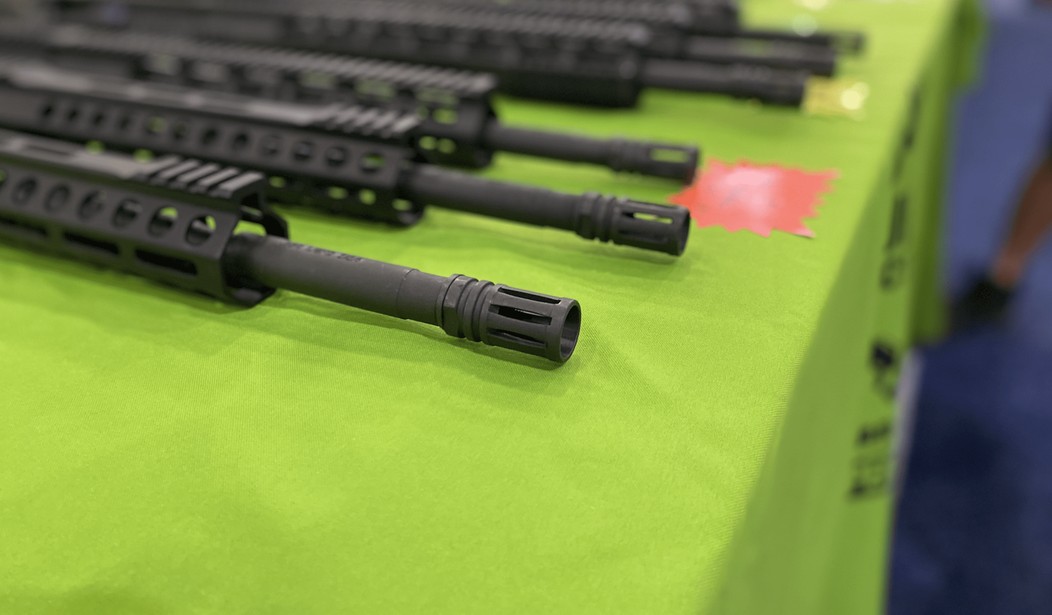Let me state up front that I’m not a lawyer nor do I claim to be. You don’t have to have a law degree or be a practicing litigator, however, to see the fundamental flaws in attorney Theodore Babbitt’s argument that bans on semi-automatic rifles don’t implicate or infringe on our right to keep and bear arms.
From the beginning of Babbitt’s diatribe, he manages to misstate facts about AR-15s and other modern sporting rifles in an attempt to play up the supposed dangerousness of the most commonly-sold rifle in the country.
This weapon of choice for American mass murders is essentially identical to the military’s M16. Its bullet velocity is three times that of a handgun. It decimates human organs and pulverizes bones into dust. One round leaves an exit wound the size of an orange.
… There is no reason for a civilian to own an AR-15 other than to kill other civilians. The weapon is useless in hunting because it so decimates the target it renders the meat inedible.
If the M16 and AR-15 are “essentially” identical, then why is one available for purchase by civilians and one is not? Or, better yet, why doesn’t the military use AR-15s and not M16s, if there’s virtually no difference?
The AR-15 is also not the “weapon of choice” for American mass murderers. According to the FBI, handguns were by far the most common type of weapon used in active shootings in 2021, just as they’re used in the vast majority of gun-involved violent crimes. And yet the Supreme Court categorically shut down the idea of a ban on handguns in the 2008 Heller decision, ruling that it violated the Second Amendment for Washington, D.C. to ban an entire category of firearms.
I own several AR-15s, not to kill civilians but for hunting, target practice, and yes, as a means of self-defense. I’m pretty sure Babbitt has never fired or even held an AR-15 if he thinks that a .223 round “renders the meat inedible,” but I can assure him that’s not the case. As far back as 2014 more than a quarter of hunters surveyed by the National Shooting Sports Foundation reported using an AR-style rifle to hunt, and that figure has undoubtably grown larger since then.
In the court of public opinion these arguments might matter, but when it comes to an actual courtroom the Supreme Court has made it clear that the real test of a gun control law’s constitutionality lies in the text, history, and tradition of the Second Amendment. Once again Babbitt claims that is no impediment to a national ban.
Scalia’s opinion in Heller concluded that the Second Amendment did not limit possession of guns to a militia but rather authorized individual ownership by civilians. The opinion concluded that the District violated the Second Amendment because it effectively banned lawful weapons and made other weapons unavailable for self-defense.
However, the Heller opinion, far from protecting a weapon like the AR-15, made clear that such a weapon could not only be regulated but banned once again. Heller specifically affirmed the National Firearms Act’s restrictions on machine guns and sawed-off shotguns, concluding that the Second Amendment does not protect “those weapons not typically possessed by law-abiding citizens for lawful purposes such as short-barreled shotguns.”
Heller makes it clear that the Second Amendment, like most rights, is not unlimited and does not grant the right to keep and carry any weapon in any manner for whatever purpose.
A constitutional “originalist,” Scalia sought to hew closely to the framers’ original intent to protect weapons “in common use at the time” such as rifles and handguns, certainly not machine guns, sawed-off shotguns, or AR-15s.
AR-15s are the most popular rifle in the United States. There are more than 20-million AR-style rifles in the hands of American gun owners at the moment. which makes them pretty common. In fact, there are more AR-style rifles in American homes than Ford F-150 pickup trucks on American streets, and I don’t think anyone could reasonably argue that those trucks are rare or unusual. Babbitt is correct about what Scalia said in Heller. He just can’t or won’t admit that Scalia’s statement cuts against his own opinion.
It’s true that the Supreme Court hasn’t ruled on the constitutionality of a ban on AR-15s, but my guess is that day will soon be here, and when it comes Babbitt isn’t going to be happy with the outcome. There’s nothing in any of the Supreme Court’s Second Amendment decisions (including Miller) that suggests a ban modern sporting rifles would be upheld, but there’s plenty of language about the Second Amendment protecting arms that are in common use for a variety of lawful purposes that points to the Court ultimately declaring that the type of sweeping gun bans that Babbitt and anti-gun activists are demanding are simply off the table and unconstitutional.








